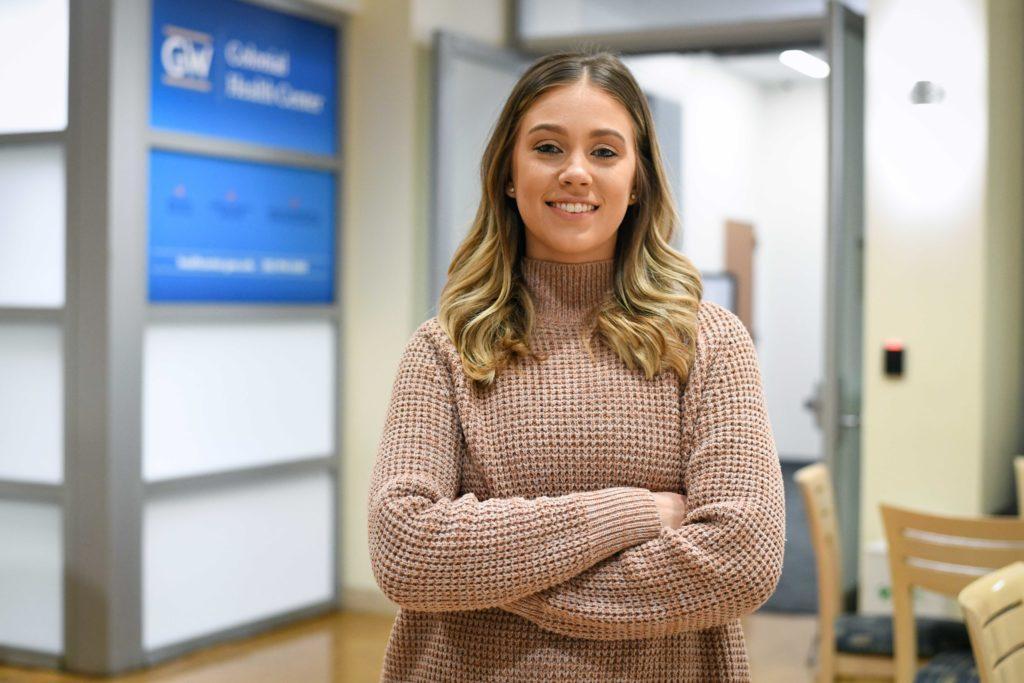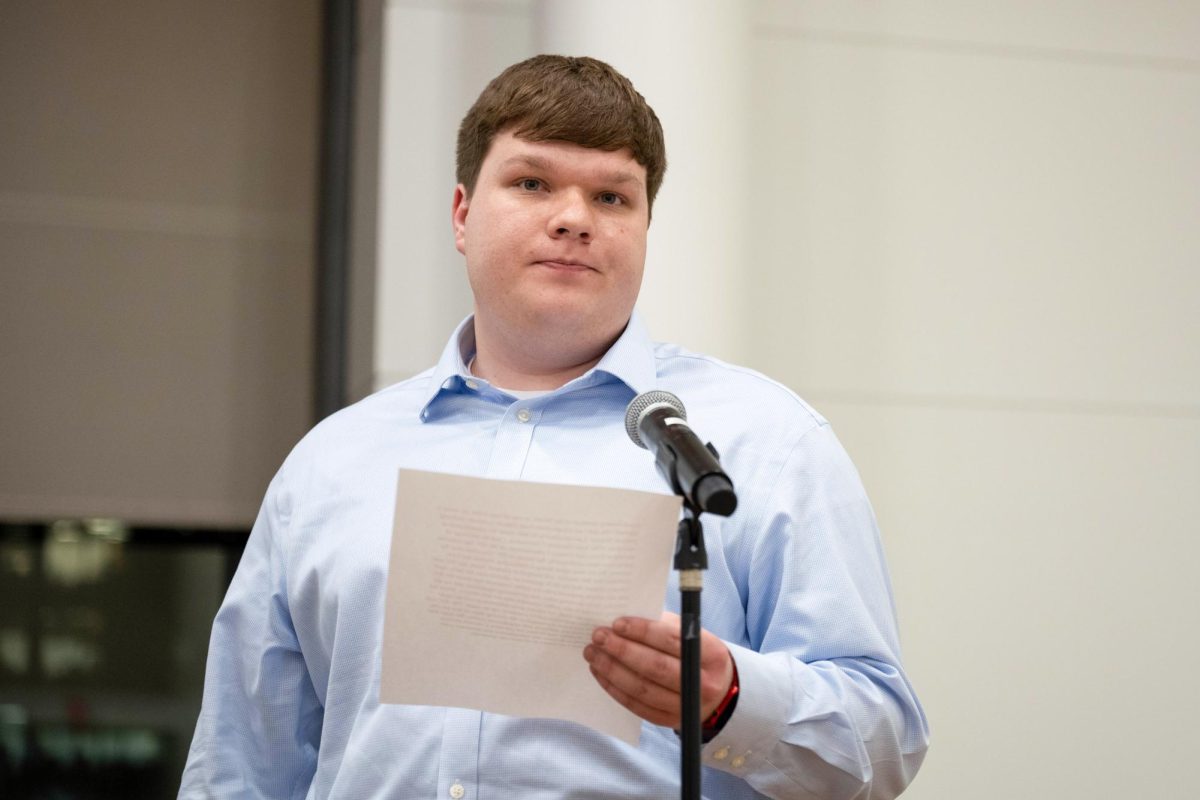Graduate student Tommy Elms barely remembers his commencement ceremony, even though it was just last spring.
Elms said he was in so much pain from a herniated disc in his back – the result of his time in the U.S. Navy four years ago – that the events of the day were a blur. The disc sent stabbing pain running up and down his leg. It was difficult for him to sit through classes, and he had to take his final exams standing up, he said.
He was seen by a primary care physician at an off-campus clinic run by the U.S. Department of Veterans Affairs in the fall of 2016, but he wasn’t able to get scheduled surgery and was only prescribed Motrin – an over-the-counter anti-flammatory drug – for the pain. He waited out his injury for eight months using pain killers and taking an off-campus pain management class.
“It’s George Washington University, it’s named after the most famous veteran in our country, so why aren’t we at the forefront of veteran issues?”
“It cost me eight months of my life,” Elms said.
Two student veterans are seeking to create a partnership between GW’s Student Healthcare Program and the Office of Military and Veteran Student Services allowing injured student veterans to receive the same healthcare benefits at GW that they would from the federal government. Organizers of the effort said it would help veterans with service-related disabilities skip lengthy wait times for off-campus primary care.
Veterans H.W. Floyd, a student in the Graduate School of Political Management, and Nicole Serafino, a junior in the Milken Institute School of Public Health, will meet with University President Thomas LeBlanc March 1 to ask him to provide a free health care plan for student veterans with service-related disabilities in addition to the federal tuition benefits they already receive.
Currently, the VA provides veterans with a health care plan, but they are forced to go to crowded VA-approved clinics far off campus to see a doctor. The VA has faced heavy criticism in recent years for prolonged wait times at its clinics nationally.
Floyd said the exact details have yet to be worked out, but he hopes the plan will include coverage for medical emergencies, routine check-ups and specialist care. Currently, the student health care plan includes physical exams, prescription drugs and testing for sexually transmitted diseases. The voluntary annual plan charged students more than $4,000 this year, according to information on the Colonial Health Center’s website.
Floyd, who served in the U.S. Marine Corps, said the new partnership will not only help veterans on campus who face long wait times to get appointments for their injuries, but will help GW lead the country in offerings for veterans because it would be the first of its kind in the country.
Emory University offers a similar program that provides free mental health care to veterans.
“It’s George Washington University, it’s named after the most famous veteran in our country, so why aren’t we at the forefront of veteran issues?” he said.
Floyd said the idea for the partnership came from a class about government committees, and he approached Serafino about a month ago to begin working on the proposal. He said the pair have been working with the veterans office to develop the initiative and hope to convince officials to pursue the plan beginning next academic year.
He said there isn’t yet an estimate for the cost, but it will likely be small because of the relatively small number of veterans on campus. There are more than 1,800 students using veteran benefits at GW, but only a portion of them have a service-related disabilities, Floyd said.
If the University can’t provide funding, Floyd said the students will launch a fundraiser sometime near the end of March to try to raise the resources necessary to start the partnership.
Andy Sonn, the director of the veteran’s office, said the office is aware of the initiative but is waiting for a formal detailed proposal to fully evaluate the plan.
“We look forward to receiving the full proposal and are happy to support the students as they explore their initiative with the University,” he said in an email.
He declined to say how many veterans at GW have a disability service rating from the VA. He also declined to say how he felt the program would benefit veterans on campus.
After several top officials left the Office of Veteran and Military Student Services last year, some student veterans questioned the University’s commitment to their program.
The effort comes on the heels of a push by student veteran leaders last month to lobby for priority course registration for student veterans.
“If I got hurt right now, I would honestly, not unless I absolutely couldn’t walk, not go to the VA because they take forever and it’s far.”
Serafino was recently a guest on the radio program “Connecting Veterans,” a show on WJFK that reports on veterans issues, to promote the effort.
Ariana Escandon, a senior who served in the U.S. Marine Corps, also has a service-related disability – a knee injury from her time at boot camp. She said it would be easier to attend appointments on campus at a medical facility that accepts federal benefits and isn’t as slow as VA clinics.
“I know people who have backs where some days it’s just horrible and they can’t walk and it does inhibit their ability to go to class,” she said. “But then it’s not very logical to go all the way to the VA just for a note that says, ‘hey I couldn’t walk today.’”
In recent years, the VA has come under fire for long wait times for treatment across the country. It was estimated in a report in 2016 that more than 300,000 veterans died waiting to be seen.
“If I got hurt right now, I would honestly, not unless I absolutely couldn’t walk, not go to the VA because they take forever and it’s far,” she said.





